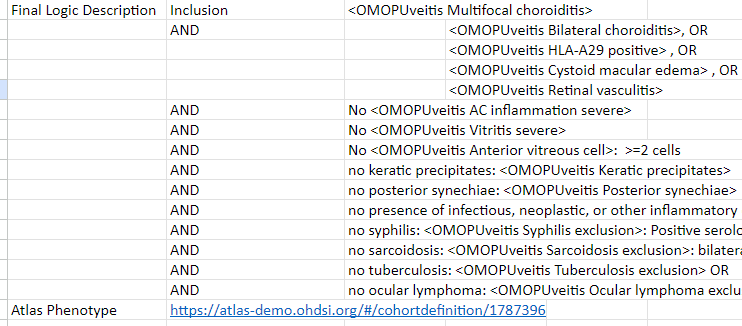| Contributor | ORCID | Organization | |||
|---|---|---|---|---|---|
| Edward Lee | N/A | Roski Eye Institute, Keck School of Medicine, USC | |||
| Kiana Tavakoli | 0000-0003-1883-9018 | Shiley Eye Institute, University of California San Diego | |||
| Rupesh Agrawal | 0000-0002-6662-5850 | National Healthcare Group Eye Institute, Tan Tock Seng Hospital, Singapore | |||
| William Rojas Carabali | 0000-0002-9976-8989 | Lee Kong Chian School of Medicine, Nanyang Technological University, Singapore | |||
| Karen Armbrust | 0000-0001-9381-4756 | Minneapolis VA Health Care System, University of Minnesota | |||
| Kareem Moussa | 0000-0001-9110-9594 | Department of Ophthalmology & Vision Science, University of California, Davis | |||
| Jessica Shantha | 0000-0002-4449-8598 | F.I. Proctor Foundation, University of California, San Francisco | |||
| Edmund Tsui | 0000-0001-7532-9191 | UCLA Stein Eye Institute, David Geffen School of Medicine at UCLA | |||
| Brian Toy | 0000-0002-9612-5697 | Roski Eye Institute, Keck School of Medicine, USC |
- Clinical description: Computable definition of BICC classification criteria for birdshot chorioretinitis. This phenotype is of patients with a diagnosis or clinical findings of posterior uveitis consistent with birdshot chorioretinitis. This phenotype operationalizes the definition published by the investigators who attended the international conference on birdshot chorioretinitis (PMID 16386995)
Inclusion
Criteria ([#’s 1-4)
- Bilateral disease
- Presence of at least 3 peripapillary “birdshot lesions” inferior or nasal to the optic disc in one eye
a. Cream-colored, irregular or elongated, choroidal lesions with indistinct borders, the long axis of
which is radial to the optic disc (“birdshot spot”) - <=1+ cells in the anterior chamber
- <=2+ vitreous haze
Supportive findings
- HLA-A29 positivity
- Retinal vasculitis
- Cystoid macular edema
Exclusion
- Keratic precipitates
- Posterior synechiae
- Presence of infectious, neoplastic, or other inflammatory diseases that can cause multifocal choroidal lesions
*Logic description:
Recommended Study applications: target
Submitted cohort definition:: [ATLAS: Cohort Definitions (ohdsi.org)]
